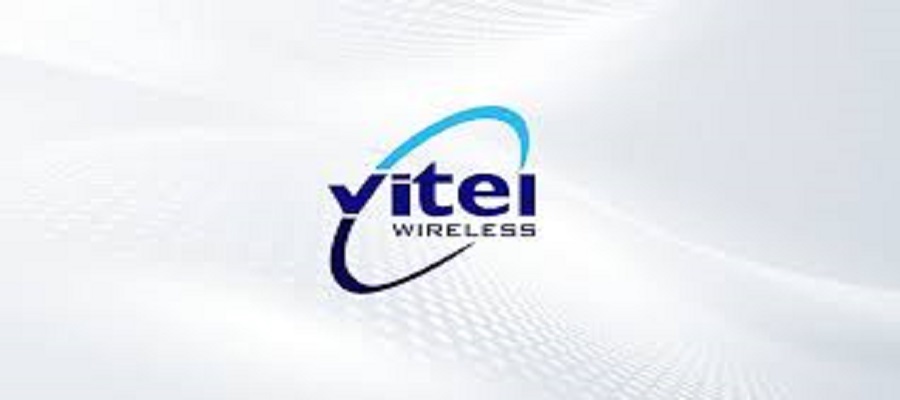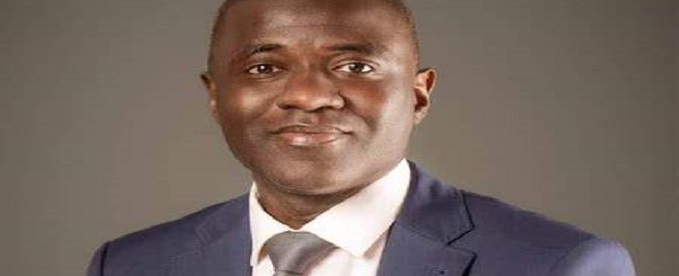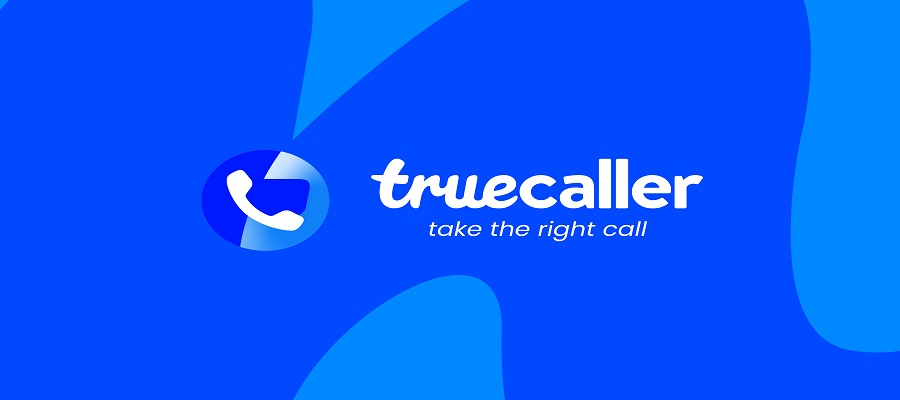Telecom
How Insecurity Impacts Mobile Phone Subscription in Nigeria

Latest telecommunications special edition poll results released by NOIPolls Limited have revealed that a higher proportion of Nigerians use 2 phone lines either registered under one network provider or under two different ones.
This trend has been consistent from 2012 to 2014; however, a 5-point reduction in the proportion of Nigerians in this category was seen from 2012 to 2013 and 3-points increase in 2014.
An assessment of the mobile network used by Nigerians placed MTN as the highest used network in the past two years (2012-2013) and even in the present times; although subscription to this provider has consistently declined within this period.
According to the MTN group, this decline has been mainly due to ‘regulatory restrictions’ imposed by the telecoms watchdog and growing spate of unrest by Boko Haram especially in the Northern part of Nigeria.
Other Networks used by Nigerians in the order of higher subscribers include; Airtel (45%), Etisalat (33%), Glo (28%) and Visafone (1%).
In line with this, the proportion of Airtel subscribers which seemed steady from 2012 to 2013 at (39%), picked up by 6-points in 2014 (45%), thus, making it the only network that has seen a considerable growth in the proportion of its users.
This increase may have been driven by the discovery of the cheaper tariffs offered by this network compared with other networks.
More findings on the usage of phone lines revealed a higher proportion of subscribers (76%) use MTN as their main line; this could have been as a result of a first mover advantage earned by this operator.
In addition, 15% of mobile network subscribers indicated Airtel as their main line, 5% indicated Glo, while 4% of subscribers use Etisalat as their main line.
An assessment of the services provided by network providers revealed that a higher proportion (64%) of mobile phone users across all networks are getting value for money from their main network provider through the ‘quality of network services’ (27%), ‘bonus offers’ (25%) and ‘cheaper tariff’ (23%) among others.
Furthermore, MTN ranks highest for providing best services in Nigeria in 2014, followed by Airtel and Etisalat (68%, 17% and 11% respectively) and to further improve the quality of services of Network providers, subscribers have suggested the ‘reduction of tariff’ (30%) as a measure for improving the quality of telecommunication services while capitalizing on ‘wider network coverage’ (22%) and ‘improved network services’ (22%).
These were some of the key findings from the Telecommunications snap poll conducted in the week of November 17th 2014.
At the dawn of the 21st century, mobile network providers were granted licenses to operate in Nigeria, hence, the introduction of the Global System for Mobile Communication (GSM) which subsequently changed the frontage of telecommunications in Nigeria.
In the present times, figures obtained from Nigerian Communications Commission (NCC), reveals that the teledensity of the country’s telecommunications industry increased to 96.08 per cent in September, from the 90.78 per cent in March 2014 just as active lines in the nation’s telecommunications industry increased to 134,507,329 in September 2014.
Nigeria’s teledensity is currently calculated by NCC on a population of 130 million people.
Given this major breakthrough in the telecommunications industry, and with the competitive nature of the industry due to the advent of different players, ‘Quality of Service’ has been the major criteria for measuring the satisfaction of mobile network subscribers.
In line with Section 89 of the Nigerian Communications Act 2003 which mandates the Commission to monitor all significant matters relating to the performance of all licensed telecoms service providers, the Commission placed a ban on the sales of new SIM cards in March 2014 and on promotions or bonus offers on some mobile networks operators recently, following the failure of these operators to meet the various Quality of Service (QoS) Key Performance Indicators (KPIs).
Against this background, NOIPolls conducted it special edition poll on the telecommunications in Nigeria, to explore the current state of the sector from the perspective of consumers. The poll sought to measure the following:
Key Findings:
Respondents to the poll were asked ten specific questions; only 6 of these questions are discussed in this release. With the aim of assessing the usage of mobile phone lines in Nigeria, respondents were asked: How many phone lines do you currently use?
Findings from the current poll highlights that a higher proportion of Nigerians use 2 phone lines.
These lines could either be registered under one network provider or under two different ones.
The use of 2 or more lines could probably be driven by the need to overcome certain issues associated with mobile network which could range from accessibility to cost. In addition, 33% of Nigerians use one line, 17% use 3 lines, while 7% confirmed they use more than 3 lines.
The use of 2 phone lines seems like the norm across all geo-political zones, except for the North-West zone where the higher proportion of the residents use one phone line.
The North-East zone (33%: 22%+10%) and the South-West zone (31%: 23%+8%) accounted for the highest proportion of respondents who use 3 or more phone lines.
A 3-year trend analysis on the usage of phone lines in Nigeria revealed a consistent trend of 2 phone line usage by Nigerians from 2012 to 2014, however there was a 5-point reduction in the proportion of Nigerians in this category from 2012 to 2013 and 3-points increase in 2014.
More findings revealed that more residents from the North-East zone use more than 3 phone lines in 2014 compared with the past 2 years with a significant increase of 9-points from 2013 (1%) to 2014 (10%).
A view of the trend on phone usage across age-groups revealed that Nigerians within the age-group of 18-21 years have increasingly adapted the use of 2 phone lines over the years; from 2012 where it was lowest to 2014 (41%) with the highest record.
This increase in this category of Nigerians has stimulated a drop in the use of 1 line by this age-group. On the other hand, respondents aged 61+ have continuously reduced the use of 3 or more lines to settle for the use of 1 to 2 lines from 2012 to 2014.
Subsequently, with the aim of exploring the mobile network providers used by Nigerians, respondents were asked: Which network provider(s) do you currently use?
Findings revealed that MTN is the highest used line as confirmed by the vast majority of respondents (91%); this is followed by Airtel (45%) and Etisalat (33%). While 28% of Nigerians use Glo, only 1% of Nigerians use Visafone.
This finding validates the data of the Nigerian Communication Commission (NCC) which revealed the movement of Airtel Nigeria Limited up to the second place in terms of market share on the number of mobile subscribers on its network with MTN maintaining the first position.
Trend analysis on the network providers used by Nigerians from 2012 to 2014 depicts a consistent decline in the proportion of Nigerians who subscribe to MTN from 2012 to 2014 with a total decline of 4-points within this period.
According to the MTN group, this decline has been mainly due to ‘regulatory restrictions’ imposed by the telecoms watchdog and the growing spate of unrest by Boko Haram especially in the Northern part of Nigeria.
While a significant 10-point decline in the proportion of Glo subscribers from 2012 (38%) to 2013 (28%) was seen, there has been no difference in this category of subscribers since then. The same applies to Etisalat with an 8-point decline from 2012 (40%) to 2013 (32%) although a slight 1-point increase was recorded in 2014.
On the other hand, the proportion of Airtel subscribers which seemed steady from 2012 to 2013 at (39%), picked up by 6-points in 2014 (45%), thus, making it the only network that has seen a considerable growth in the proportion of its users, among other findings by NOIPolls.
Telecom
Vitel Wireless, Nigeria’s First MVNO to Launch Operations This Quarter

Vitel Wireless, a mobile virtual network operator (MVNO), which recently made history as the first operator in Nigeria to be allocated a mobile number series by the Nigerian Communications Commission (NCC) is set to launch operations this quarter.

This is sequel to announcement by Wireless Technology Labs (WTL) that t has built the network of Vitel Wireless, and enabled overseas roaming, in preparation for Vitel’s launch.
Vitel Wireless, which is headquartered in Lagos, was licensed by the NCC in 2023 and will be the country’s first MVNO.
Its launch is set to shake up Nigeria’s telecoms market with Vitel offering an alternative to the services of the country’s four major operators—MTN, Airtel, Globacom and 9Mobile.
Vitel’s network will go live in Nigeria’s major cities first and then expand nationwide.
Pricing will be competitive for basic services like voice, SMS and data and Vitel will also focus on value added services like location-based services (LBS) and IOT.
Vitel Wireless is building Experience Centres in Lagos, Abuja, Enugu, Port Harcourt, Kano and Nigeria’s other major cities where customers can purchase SIM cards.
In addition, Vitel is building a distributor network with SIM cards available through retail channels and online subscriptions using eSIMs.
WTL has already completed the integration of Vitel’s infrastructure with the network of a major MNO and has also enabled international roaming using its proprietary advanced core systems.
This means that Vitel will be able to launch as soon as the NCC approves its network and operational model.
Kenneth Nwabueze, CEO of Vitel Wireless, said “We are going to be offering innovative solutions beyond what the big four operators who have dominated Nigeria’s telecoms market are currently offering. We are investing heavily in our operations, and our work with WTL will enable us to launch in Q2, 2025”.
WTL, which is headquartered in Belgium, has been active in Nigeria and across Africa for more than 20 years working with operators of all sizes to rollout both urban and rural networks. Its work has garnered widespread recognition and industry awards.
WTL has already enabled the networks of two of the 46 new MVNOs licensed by the NCC, and recently announced that it is working with Nigeria’s first Mobile Virtual Network Enabler (MVNE) which is constructing new mobile network infrastructure to provide capacity for emerging MVNOs through its Platform as a Service (PaaS) model.
Mr. Satya Mekala, CEO of WTL, said, “I congratulate The NCC for licensing new operators to improve competitiveness, increase rural coverage and drive the adoption of digital services including Fintech, Edtech, Agriculture, IOT and more. I further thank Vitel for giving us the opportunity to showcase our advanced core technologies and wish them great success in becoming the first ever MVNO in Nigeria”.
Telecom
ipNX Partners NCC to Deepen Broadband Penetration

ipNX, Nigeria’s leading information and communications technology company and connectivity provider is collaborating with the Nigeria Communications Commission (NCC) to explore opportunities for further growth and development policy alignment in support of the Federal Government of Nigeria’s broadband penetration and digital transformation agenda.

The company recently visited NCC at it Abuja office to strengthen the collaborative relationship between both institutions.
The delegation from ipNX, which was led by Ejovi Aror, group managing director, was received by Dr Aminu Maida, executive vice chairman/chief executive officer, Nigeria Communications Commission.
During the visit, the discussions focused on the current state of internet access in Nigeria, the myriad of challenges being faced by service providers, including but not limited to vandalism of key infrastructure and right of way, as well as the regulatory landscape.
The engagement highlighted the shared vision of both institutions to bridge the digital divide and empower Nigerians through reliable and affordable internet connectivity.
As a leading player in Nigeria’s ICT sector, ipNX reaffirmed its unwavering commitment to the realisation of the National Broadband Plan, which aims to achieve 70% broadband penetration this year.
With over two decades of pioneering innovation within the sector, the company has consistently demonstrated resilience across different economic cycles without compromising quality of service and affordable pricing.
Commenting on the visit, Aror, stated, “Our engagement with the Nigeria Communications Commission is a positive step towards shaping the future of telecommunications in Nigeria. At ipNX, we believe that active collaboration with regulators and other key stakeholders is critical to achieving the development targets outlined in the National Broadband Plan. We are proud to continue playing a pivotal role to drive broadband penetration and ensure that every Nigerian, irrespective of their location, has access to the transformative power of the internet.”
The meeting also emphasised the importance of policy alignment and regulatory frameworks that enable innovation, investment, and sustainable growth in the telecommunications sector.
As Nigeria continues to make strides in its digital transformation journey, ipNX stands ready to leverage its expertise, infrastructure, and partnerships to support the realisation of the government’s broadband penetration objectives.
The company remains dedicated to empowering individuals, businesses, and communities through cutting-edge technology and unparalleled connectivity solutions.
Telecom
Truecaller Surpasses 450m Users, Expands Global Reach

Truecaller, the popular caller identity app, announced that it surpassed 450 million users earlier this week, expanding it’s global reach.

The company added 50 million users in the past 10 months, including 15.5 million since the beginning of 2025.
Leadership Changes and Market Expansion
India remains Truecaller’s largest market, a factor reflected in the company’s recent leadership decision.
Following the decision of its co-founders to step back from daily operations last year, Truecaller appointed Rishit Jhunjhunwala, previously the Chief Product Officer and MD of India operations, as the new CEO.
While India continues to be a key market, Jhunjhunwala noted that the company is seeing rapid growth in other regions.
“We are proud that we now serve more than 450 million users globally. As before, we continue to see steady growth in our largest market, India, but the fastest relative growth is in markets outside of India.
“So far in 2025, we see strong growth trends in Latin America, South Africa, Kenya, Nigeria, Malaysia, and the US,” Jhunjhunwala wrote in a blog post.
Regulatory Challenges in India
Despite its dominance in India, Truecaller faces potential challenges as the country’s telecom department pushes for mobile carriers to implement a government-backed caller ID system.
This move could introduce competition to Truecaller’s services in one of its most crucial markets.
Financial Performance and Market Position
Truecaller maintained an active user base of nearly 430 million throughout Q4 2024. The company reported strong financial results for the quarter ending in December, with:
Net sales increasing by 23% year-over-year
Profit after tax rising by 29%
Stock price up more than 33% year-to-date
Product Enhancements and AI Integration
Earlier this year, Truecaller improved its caller ID functionality for iOS, overcoming previous limitations imposed by Apple’s operating system.
The company has also been expanding its offerings beyond caller identification by introducing:
Call recording and transcription features
An AI-powered assistant for call screening
Enhancements to its SMS and chat functionalities
With these advancements, Truecaller aims to solidify its position as a comprehensive communication platform while navigating competitive and regulatory challenges.

 News3 days ago
News3 days agoNIPSS Projects Petrol Prices to Hit ₦750/Litre Before Year’s End!

 E-Financial3 days ago
E-Financial3 days agoFidelity Bank Reports N385.2Bn Pre-Tax Profit for 2024

 E-Business3 days ago
E-Business3 days agoNIMC Says NIN Mandatory to Government Loans

 General News3 days ago
General News3 days agoFinancial Cyberthreats Report Reveals 3.6Ttimes Surge in Mobile Banking Malware

 News3 days ago
News3 days agoFG to Create 1m Technology Jobs – Minister

 E-Financial3 days ago
E-Financial3 days agoNew Investment Law Empowers SEC to Obtain User Data from Telcos

 E-Business3 days ago
E-Business3 days agoAfrica’s Data Workers are Being Exploited by Foreign Tech Firms – Report

 E-Financial3 days ago
E-Financial3 days agoPonzi Operators Risk 10-Year Jail Term, N20m Fine – SEC

























